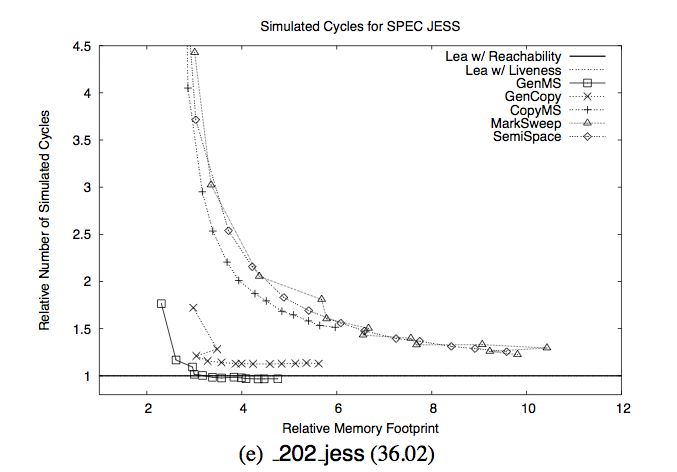
Servicing RAM uses power. So more memory = more power consumption. Android apps using Java, recycle released memory using garbage collection. What this diagram shows is that garbage collectors are really awesomely fast if you have a relative memory footprint of 4 or 8. In other words, you need four or eight times more memory, than you are actually using to be super efficient. But when the memory becomes constrained, that performance goes way down. iOS does not use this style of garbage collection and does not slow down in constrained memory environments. So 1GB for iOS results in more performance than 3GB for Android.
Conform unui dezvoltator apreciat de aplicații, Android-ul rulează aplicații Java care reciclează memoria RAM nefolosită într-un proces numit garbage collection, memoria rămasă nefolosită fiind eliberată pentru a putea fi utilizată de către alte aplicații. Deși acest proces este foarte rapid și eficient, în momentul în care memoria RAM liberă se micșorează pentru aplicații noi, performanțele terminalelor se reduc serios, memorie RAM fizică suplimentară fiind necesară. iOS-ul nu folosește acest proces de administrare a memoriei RAM și este de 3 ori mai eficient decât Android-ul, astfel că un iPhone cu doar 1 GB RAM are performanțe mai bune decât un smartphone Android cu 3 GB RAM.





















